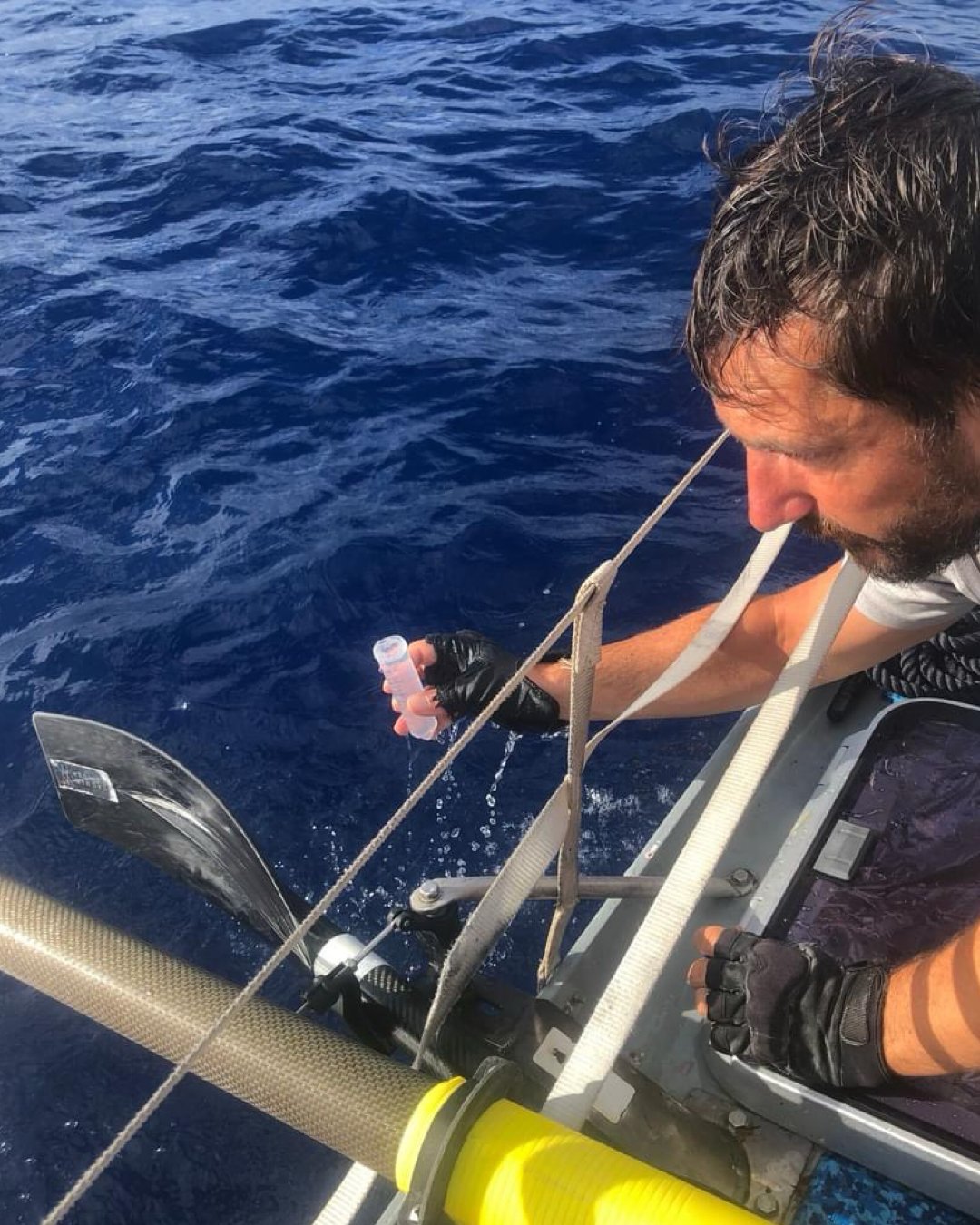Atlantic Dash surfactants and plastic pollution research
If we don’t look after the ocean, rowing across the Atlantic won’t be available for anyone.
Protect the playground.
Partnering with the University of Michigan
2024 saw the start of a great new partnership between the crews taking part in the Dash and the University of Michigan's Climate and Space Science and Engineering department (CSSE).
The crews were asked to collect water samples during their crossing as a way to gather data into the plastic pollution problem in the Atlantic.
Every day they would collect a sample of the water, write the coordinates of where it was taken from, with the time and date, and then store it for us to collect when they arrived in Antigua.
The Atlantic Rocks crew collecting a water sample
So how does a space science department benefit from collecting water samples?
Yeah, we didn’t understand it either!
Luckily Gopal Sundaram, a 3rd year PHD student taking his degree in Climate Sciences at the University of Michigan, explained it in a way we could understand…
Using data of the ocean's surface taken by the NASA satellite CYGNSS, the guys at CSSE had realised they were able to see areas where the oceans “roughness” was being reduced by surfactants.
Surfactants are soaps, oils and any other agent that can dampen the surface of the ocean.
Some common sources of surfactants include oil slicks, algae / algal blooms / seaweed and cyanobacteria. Plastics also secrete surfactants, and most plastics share similar dynamics to the surfactants, which means that if you can find surfactants, there’s a good chance you’re going to find plastics.
Atlantic Rocks crew labelling the samples
However, they needed a way to prove that the data from space is a potential way of detecting and tracking plastic. They have already verified in smaller settings, like wave tanks, that the sea surface suppression is directly related to surfactants, but the real world is always messier.
The only way to really do this is to collect ocean water samples and test them. Using a tensiometer, they can compare the concentration of surfactants to the satellite data and see how well the two sets of data match up.
Even though it’s not a perfect correlation, it gives CSSE a starting point so that eventually they can use CYGNSS, and other satellite systems like it, to pinpoint the sources and eventual whereabouts of ocean pollutants.
Just a minute spent collecting samples can benefit years of research
Atlantic Dash crews
While this is not mandatory as part of the Atlantic Dash, we encourage all our crews to participate in the research because we want the ocean to be enjoyed by people for many years to come.
We would really like to thank the 2024 crews for being the first to take part in this project. Taking a sample and labelling it with the correct information may not seem like a difficult thing to do, but when you are knackered and there are huge waves crashing down over you even remembering that you have to take the sample in the first place can be difficult!
Find out more
To read more about the Climate and Space Science and Engineering department and their research into surfactants please visit their website and Facebook page.
Our values
People — Humans, not Super-Humans.
We are breaking the misconception that ocean rowing is an elitist sport. Our goal is to demonstrate that anyone can accomplish things they may have never thought possible.
Planet — Protect the Playground.
We love the ocean and we aim to minimise our environmental impact by protecting and taking care of it.
Interested in rowing across the Atlantic?
Give us a call on +44 (0)7917 412805 for a no obligations chat or send us an email hello@monkeyfistadventures.com



